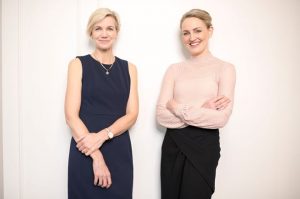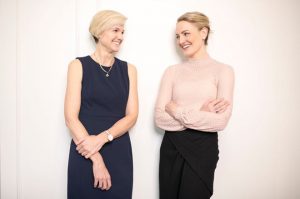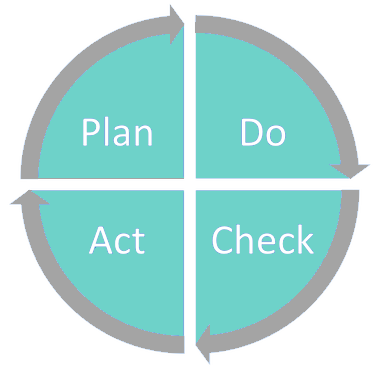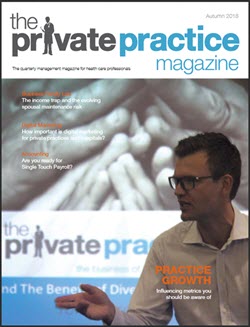As business women in the medical specialist field, I’m sure that this has come with its’ own unique challenges. Belinda, can you tell me about your journey from the decision to study medicine to starting and growing your private practice, Sunbury Dermatology and Skin Cancer Clinic and then Complete Skin Specialists?
BW: I grew up on a property riding horses so I spent most of my teenage years dreaming of being a vet. I just missed out on a spot but got into medicine instead. After a year I decided not to swap over to vet science and stay in medicine. I don’t regret this. I decided to do dermatology while I was in final year. I moved to Sydney after my intern year and spent several years as a junior doctor at the Royal North Shore Hospital while trying to study for my first part Dermatology exams. I then did a Master of Medicine at Sydney University and got offered a job on the training program in Melbourne which I started in 1996. I spent the first two years as a specialist working as a locum and started out on my own one day a week in Sunbury in a rented suite in late 2002. I had one receptionist, one consulting room a procedure room and a very small waiting room. That had the rather lofty title of Sunbury Dermatology and Skin Cancer Clinic. After a couple of years, I moved to a bigger suite but essentially rented rooms for 11 years. It was during this time that I rebranded as Complete Skin Specialists. Cara arrived in 2010. I bought a block with an old house on it in the centre of Sunbury in 2012 and spent the next two years designing and building our current practice. Cara and I became business partners in 2016 and she bought the building next door for our Cosmetic and Laser clinic. Last year we were joined by 4 other dermatologists so that has really represented a big expansion phase for us which has been very exciting.
Cara, can you tell me about your journey from the decision to study medicine to joining Complete Skin Specialists and becoming a Director?
CM: At school my passion was in fine art, especially painting and for a while I considered this as a career. I was concerned, though, about it becoming a “chore” if my livelihood depended on it. As I also loved problem-solving, people and science, I felt like medicine might be a better career choice. I really had no idea where it could lead but the problem-solving and visual aspect of skin diseases always appealed to me. I also found that dermatology allowed me to be practical and hands-on, creative and people-oriented, using all my strengths and keeping me interested.
Luckily during my junior doctor-years I met my now business partner, Belinda Welsh. She was a fantastic role model and mentor and inspired me not only to pursue dermatology, but to prioritise being a kind and empathetic doctor. After completing my specialist training, I was fortunate to have her welcome me into her already-established practice and together we grew the business.
Initially where did you seek knowledge on the business of running a medical practice?
BW: I found the AMA a good source. They have an annual “Setting up in Private Practice” information day which exposed me to a number of companies and services which were useful. I also went to several Private Practice courses which were extremely useful. This is where I first heard Hanya speak.
My loyal and supportive but exasperated husband insisted at one stage I read a book called “The E Myth: Why most small businesses don’t work and what to do about it.” by Michael E Gerber.
It took me a few reads to understand what he was trying to say especially with regards to running a medical practice (in fact he has a book specifically for doctors – The E Myth Physician) but ultimately it was this book which really changed my thinking. His premise is that we all fall into the trap of working in the business as the technician (doing the business of being the Doctor) but fail to understand the necessary roles of manager and entrepreneur. I stopped just working “in” the business but started to work “on” the business. That’s when things changed.
It was a real thrill to hear to him speak in person when he was bought to Australia by the Private Practice as a guest speaker a few years ago.
CM: Very little in the way of business advice or education is offered in medical school, nor during specialist training. Unfortunately, we need to “learn on the job” whilst also working as busy specialists. Most doctors are not necessarily good business people for this reason.
I feel lucky to have joined an established practice and been able to benefit from the work and experience that Belinda had developed over the years. Also, I do have a “numbers brain”, which has helped me get my head around the financial side of business.
I have tried to educate myself as well, using books and podcasts and have learnt a lot from my husband and mother who have business and consulting experience. Despite all this, I still have many weak areas and realise that it is almost impossible to dedicate enough time and energy to optimise the business side of the practice whilst also focusing on providing the best medical care to patients.

Belinda, how did you come to the decision to invite Cara to become a partner in your business?
BW: Actually, I found that an easy decision. She joined me in 2010 when I was working out of a small consulting suite attached to the local private hospital in Sunbury. Despite this being a rather humble little practice to my great fortune Cara stayed. Basically, we just got along really well and enjoyed working together and supporting one another.
I think we have very similar values, beliefs and ambitions which is critical to the success of our partnership. Not to mention a shared sense of humour on the tougher days. We are both working mothers and understand the challenges this presents and the need to balance all our responsibilities.
Confident she was staying for the longer term, I purchased a property in the more central part of the town and designed and built our current practice. By the time we moved into this building we had been together for 6 years with an excellent working relationship based on mutual trust and respect. Cara, understandably, was keen to transition to have a more secure position as a business owner and I was happy to share this with her. I strongly felt we could achieve more as an equal team – which has certainly proved to be right.
What have been some of the key advantages that came from working with the business consultant?
BW: Hanya has bought improved structure, organization and oversight which has been very welcome.
She has improved our lines of communication which has been welcomed by all staff.
She has bought us new ideas and introduced us to technology to streamline our business processes.
We also engaged her to find us a new practice coordinator which has proved very successful.
Overall, we feel with Hanya’s guidance, knowledge and expertise we can grow the business more effectively with more confidence in our decision making. Ultimately, we hope this translates to a better experience for our patients.
CM: Working with a business consultant has given us some clarity around the needs of our business and enabled us to develop the business in a more professional and strategic fashion. Hanya has provided mentoring for the management team and created more harmony and alignment within the practice. Ultimately, I hope it will relieve Belinda and me of some of the management duties, allowing us to focus on what we love and do best.
Belinda, through the experiences of starting a new private practice, what were the keys challenges that you faced from a business and personal perspective and what strategies helped you through this?
BW: Many of the challenges have come from trying to teach myself about managing a business whilst at the same time trying to do the work of being the doctor as well as fulfilling the myriad other expectations of being a professional (writing papers, giving talks, being on College committees etc etc). Time always feels in short supply – not to mention having 3 children along the way. Unfortunately work can become all consuming. A very supportive spouse is critical.
In my early years I was rather rigid in my thinking believing people outside of the medical world couldn’t possibly understand how a medical practice needs to be run. I was wrong. The challenge here was to broaden my thinking, be more open minded and listen to the wisdom of other business people. I now enjoy reading books on business and listening to podcasts like Harvard Business review for ideas.
Undoubtedly my biggest challenge was designing and building our current practice from a pile of dirt. I did this mostly on my own and that pretty much consumed two years of my life. Having a vision coupled with quiet determination and persistence was how I got through. I’m very proud of it now.
Cara, what were the keys challenges that you faced from a business and personal perspective and what strategies helped you through these, in joining a private practice?
CW: There have been many challenges in becoming a director of a private practice. We have grown organically so it has been difficult to put in place formal strategic planning or review systems for personal and business performance. Learning to delegate and mentoring from our business consultant, Hanya, has helped us develop frameworks for decision making and working collaboratively.

Which leads well into the question of leadership… As a business owner, you would have noticed that there was a need to take on a leadership role. What was this journey like?
BW: Having a vision and being able to communicate this to your team is very important. Leadership is not always easy. I’ve never had any formal training in this area. I’ve really just grown into it over the years and no doubt made plenty of mistakes.
I think being fair, consistent and understanding are essential but at the same time having a strong set of values and demanding accountability of those around you is key. I would like to improve my skills in this area especially as our team and business grows.
CM: Although I was not so aware of it at the time, my experience working in large hospitals and well-run private practices provided me with a very good foundation, so the transition was not too difficult. The intense schedule required to complete specialist training and exams gave me a good understanding of many issues including goal setting, the importance of good communication, clear definition of responsibilities and risk management.
Having to employ and manage a growing team for Complete Skin Specialists can be daunting for a business owner. What do feel have been the triumphs and challenges in this process?
BW: Triumphs
Seeing wonderful professional motivated passionate people grow and develop their skills and expertise with me over the years.
Challenges
Having the time to devote to all the areas of management and generally managing people!
CM: I was fortunate that Belinda had set up a very professional business, which gave us an excellent base. The main challenge has been the expansion. This has required careful planning for the key pillars of the business, so that we provide exceptional patient care and maintain the highest professional standards in training, administration and communication.
What is your vision moving forward as a practice? How does the satellite clinic work into your business plan?
BW: At the moment we have grown quickly with more doctors so I’m keen to improve our internal systems and processes to run as efficiently and effectively as possible. The satellite clinic came about more to support a young dermatologist who is on a rural bonded scholarship scheme. He needs to spend 3 years in a rural area after he has graduated. As we are located right at the edge of the metropolitan zoning he will be able to work under our umbrella at two large GP practices to the north of us. We will be able to provide him administrative support and he will work a day a week with us so we can help with more complex medical and surgical cases and provide mentoring in general. We are hopeful that if it all works out, he may choose to stay with us in the longer term.
CM: Our vision is to exceed expectations in providing an exceptional service to our customers. We strive to put our patients first and treat everyone with respect. We are committed to excellence and we are keen to support and mentor dermatologists to help meet the needs of our community. We look forward to supporting a new dermatologist in our practice who consults from satellite locations (within GP clinics) to make our services more accessible.
As a woman in business, what do you find you stand for and how is this reflected in your brand? Can you tell me about more about this?
BW: I’m not sure being a woman particularly makes a difference to the values we hold dear for our practice.
We are all dedicated professionals who are deeply committed to providing the very best service and care we can to our patients. We hope our brand reflects this integrity, commitment and passion.
CM: My personal values in business are excellence, service and integrity. I believe that communication and trust are the foundation of all good relationships and this includes those between business partners, doctor and patient and also between staff members.
I want to provide value to our customers and be an excellent employer for our staff. In order to do this, I try to be open to ideas and suggestions from all areas and always operate on the assumption that I could be wrong, or there might be a different or better way at any time.
Aside from owning and running a successful dermatology and cosmetic practice, you are involved in a number of industry bodies and have a family life to manage. How do you balance all of these important parts of your life?
BW: Well if I’m honest I don’t always – it’s very hard. I spend a lot of time working. I have a very supportive and understanding husband and three wonderful kids. I think they all think mum works too hard though. Dermatology is probably one of the more “lifestyle friendly” specialties so I have been able to modify my work over the years depending on family demands which has been extremely helpful.
CM: I think the reality is that it’s hard to do it all well. I’ve got an amazing husband and lots of support on the home front which allows me to spend the time and energy I do on work. I have learnt to let go of the small things – if nobody is going to get hurt or suffer in the long run, then I don’t worry about it.
Having said that, I frequently have #fail moments like missing appointments and birthdays and feel guilty about missing out on more time with my three small children.
I try to maintain some balance by taking frequent short breaks from work to spend time with the children and by prioritising some me-time for yoga or catching up with friends.
What is the best thing about being the Director and owner of Complete Skin Specialists?
BW: Going to work every day to a place I created and have been able to grow with Cara and our team. The sense of purpose and the care we have been able to provide to thousands of patients has been a great privilege and pleasure.
CM: The sense of achievement in providing great service to our patients and a sense of belonging for our staff. I am proud of our happy and productive team and the way they deliver excellence and expertise to our customers.
Most of all I love my work and the opportunities that come from it such as teaching and providing education about the skin to both colleagues and the community.
If you were to have the opportunity to speak to Dr Belinda Welsh, recent graduate – what advice would you give yourself?
BW: Enjoy the journey. Have a go.
Work hard but take time to enjoy life too. Appreciate how lucky you are to have been given opportunities in life and be brave enough to take them.
Remember to stay true to who you are and to your values and I think you’ll be OK!!
CM: The sacrifices you make and the work you put in will definitely be worth it. When it all seems overwhelming, just focus on the tasks of the hour or the day and the big picture will take care of itself.







 The Practice Manager needs to provide regular monthly reporting to the doctor, to ensure the KPIs of the practice are being met. This reporting is best when it is easy to read and the indentified KPIs are easily identified. The purpose of this reporting is to ensure the practice is continuously improving – as per the Deming’s Cycle diagram. A successful business never rests on its laurels, but consistently follows the continuous improvement cycle of planning for improvement, implementing the planned change, then measuring and checking the effectiveness of the plan and adjusting the plan to ensure success.
The Practice Manager needs to provide regular monthly reporting to the doctor, to ensure the KPIs of the practice are being met. This reporting is best when it is easy to read and the indentified KPIs are easily identified. The purpose of this reporting is to ensure the practice is continuously improving – as per the Deming’s Cycle diagram. A successful business never rests on its laurels, but consistently follows the continuous improvement cycle of planning for improvement, implementing the planned change, then measuring and checking the effectiveness of the plan and adjusting the plan to ensure success.

